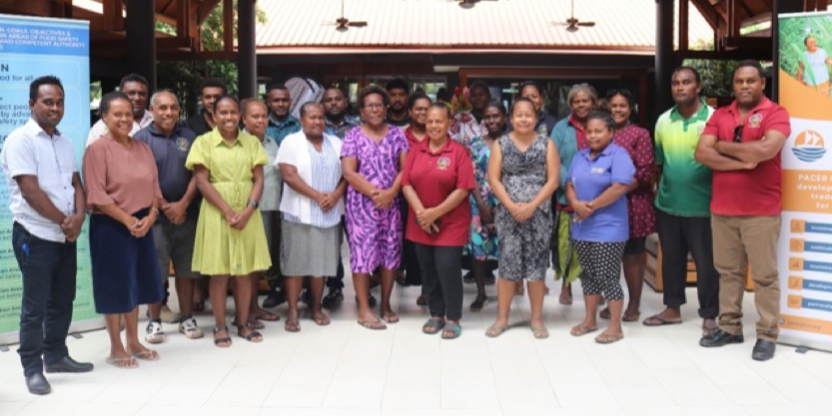A two-day training and review workshop on the Quality Management System (QMS) was recently held in Honiara for Environmental Health Division officers from both Honiara and the provinces.
The workshop was facilitated by the Environmental Health Division under the Ministry of Health and Medical Services, with support from the Ministry of Foreign Affairs and External Trade (MFAET) through PACER Plus.
Deputy Director of External Trade, Ms. Jenny Barile, emphasized that implementing a QMS will help standardize inspection practices, strengthen accountability, and enhance the reliability of food safety assessments.
“A robust Quality Management System will enable our local food producers and exporters to meet international health and safety standards,” Ms. Barile said.
“This will help Solomon Islands establish a strong reputation for producing high-quality goods, improve access to overseas markets, and ensure that imports also comply with the standards we set to protect our people.”
She highlighted the vital role of participants in safeguarding food safety in communities.
“As custodians of food safety, your responsibility in ensuring that all food products—whether consumed locally or traded across borders—are safe and of high quality cannot be overstated.”
“From our fishery exports to our growing cocoa, kava, and root crop industries, we must be prepared to meet both national and international requirements. Your role as inspectors is central to achieving that goal,” she added.
On behalf of the Ministry of Foreign Affairs and External Trade, Deputy Director Barile thanked the participants for attending and expressed further gratitude to the Environmental Health Division for facilitating and PACER Plus for funding this critical capacity building activity.
Solomon Islands continues to face trade deficits, highlighting a reliance on imported goods and services.
To address food safety and support trade compliance, the Environmental Health Division (EHD) and its Food Safety Unit (FSU) have introduced a Quality Management System (QMS) to standardize food safety practices across the country.
With 42 health inspectors nationwide, capacity building is essential to ensure effective implementation of the QMS, which supports international trade obligations under PACER Plus.
–MFAET PRESS RELEASE









